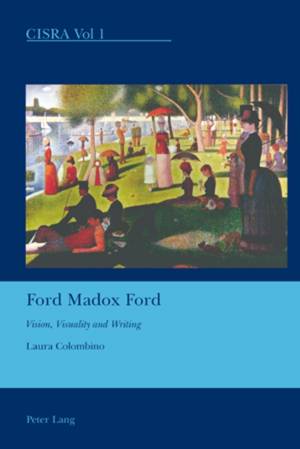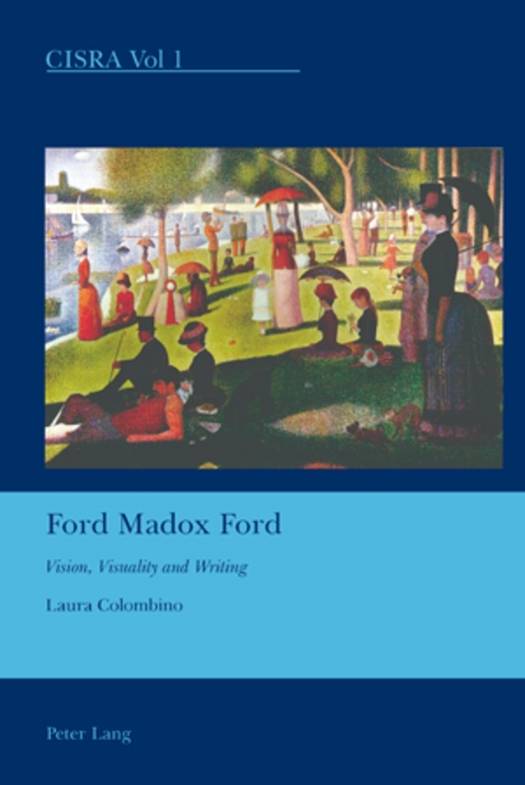
- Retrait gratuit dans votre magasin Club
- 7.000.000 titres dans notre catalogue
- Payer en toute sécurité
- Toujours un magasin près de chez vous
- Retrait gratuit dans votre magasin Club
- 7.000.0000 titres dans notre catalogue
- Payer en toute sécurité
- Toujours un magasin près de chez vous
Description
This book spans the most significant phases of Ford's literary production, from his art criticism to his main modernist novels: The Good Soldier, Parade's End, The Rash Act and Henry for Hugh. The aim is to explore the uncharted territory of Ford's interest in the scopic field, claiming that his investigation of the optical unconscious is his most original contribution to the modernist concern for the stream of consciousness.
This is the first in-depth study of Ford's interest in the gaze and how it is related to writing, painting, music, sculpture, visual technologies and forms of popular entertainment. Undermining the clichéd critical vision of Ford as the last Pre-Raphaelite or proto-Futurist, this study analyses Ford's fascination with the visual avant-garde and his response to the revolution of photography and (proto-) cinematographic forms from the specific angle of the scopic drive. Part history, part theoretical discussion embedded in the close reading of the texts, this book is also concerned with Ford as a great stylist whose writing strives to project an image of itself and its structures in the reader's eye. Drawing inspiration from psychoanalysis and art criticism, the author capitalises on the theories of Jacques Lacan, Rosalind Krauss, Hal Foster, Jonathan Crary, and Norman Bryson to disclose the fascinating and baffling universe of Ford's gaze.
This is a revised and extended English translation of the original book Ford Madox Ford: Visione/visualità e scrittura.
This is the first in-depth study of Ford's interest in the gaze and how it is related to writing, painting, music, sculpture, visual technologies and forms of popular entertainment. Undermining the clichéd critical vision of Ford as the last Pre-Raphaelite or proto-Futurist, this study analyses Ford's fascination with the visual avant-garde and his response to the revolution of photography and (proto-) cinematographic forms from the specific angle of the scopic drive. Part history, part theoretical discussion embedded in the close reading of the texts, this book is also concerned with Ford as a great stylist whose writing strives to project an image of itself and its structures in the reader's eye. Drawing inspiration from psychoanalysis and art criticism, the author capitalises on the theories of Jacques Lacan, Rosalind Krauss, Hal Foster, Jonathan Crary, and Norman Bryson to disclose the fascinating and baffling universe of Ford's gaze.
This is a revised and extended English translation of the original book Ford Madox Ford: Visione/visualità e scrittura.
Spécifications
Parties prenantes
- Auteur(s) :
- Editeur:
Contenu
- Nombre de pages :
- 280
- Langue:
- Anglais
- Collection :
- Tome:
- n° 1
Caractéristiques
- EAN:
- 9783039113965
- Date de parution :
- 13-10-08
- Format:
- Livre broché
- Format numérique:
- Trade paperback (VS)
- Dimensions :
- 147 mm x 221 mm
- Poids :
- 408 g

Les avis
Nous publions uniquement les avis qui respectent les conditions requises. Consultez nos conditions pour les avis.






